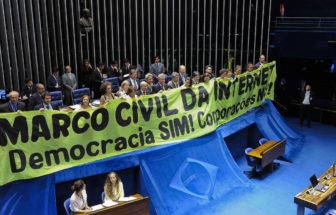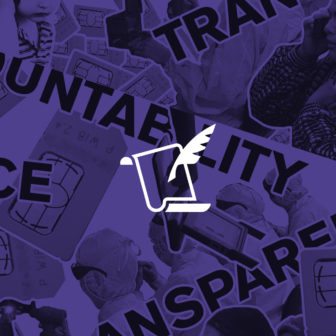Tag: Expression

After Brazil shutdown, WhatsApp deserves support, not blame
A judge in Brazil ordered a WhatsApp shutdown, and Telefónica lashed out…at WhatsApp. Our open letter to Telefónica explains that telcos should push back on shutdown requests, not shame companies.

Victory in Malaysia as High Court lifts ban on major publisher
Rights groups won a major victory for free expression in Malaysia as a High Court lifted a three-month ban on The Edge Media Group. The decision follows months of sustained pressure by local advocacy groups in Malaysia and international organizations including Access Now. Sarawak Report, another major media organization in Malaysia, remains blocked.

Shutdowns, surveillance, & discrimination on Human Rights Council agenda
The 30th Session of the U.N. Human Rights Council (“HRC30”) has begun in Geneva. Over the course of the three-week session, the 47 Member States of the Council – and a full slate of civil society representatives, observer states, and technical experts – will debate resolutions and reports on the current status of human rights worldwide. Access and the Association for Progressive Communications (APC) have compiled highlights identifying the key digital rights issues on the Council’s agenda, as well as relevant side events and countries under review in the Universal Periodic Review.

Exploring socially disruptive technology and human rights at the World Economic Forum in China
Brett Solomon will speak next at the World Economic Forum’s Annual Meeting of the New Champions, discussing socially disruptive technology and its impact upon digital rights and users at risk.

Turkey v. encryption: An attack on freedom of expression
Earlier this week, two foreign journalists for Vice working in southeastern Turkey were arrested, raising concerns about the journalists’ safety and security. In a dark reminder of the “Crypto Wars” of the 1990s, a Turkish official stated yesterday that the main reason that these journalists were detained is that they use encryption. This morning, the news surfaced that the journalists have been released and are free to leave the country, although the charges against them have not been dropped. A local translator who had been working with them remains in custody.
This incident raises serious issues for digital rights and digital security, and could cause a powerful chilling effect for freedom of expression — not just in Turkey, but in other conflict-prone regions around the world.

Digital Security Helpline case study: Defending freedom of expression in Sudan
During the 2015 general elections in Sudan, several online newspapers were targeted for malicious hacking and Distributed Denial of Service (DDoS) attacks. When one opposition newspaper became unreachable due to a suspected DDoS attack, Dalia Haj-Omar, a Sudanese human rights advocate living in France, enlisted the help of Access’ Digital Security Helpline, through which activists, independent media, and civil society organizations across the globe can get real-time, direct technical assistance and advice 24 hours a day, seven days a week. With our assistance, the opposition paper was accessible again within 48 hours.

Bersih 4.0 rally update: No incidents, but more needs to be done to free the press in Malaysia
In the wake of the Bersih 4.0 rally, we call on the government of Malaysia to uphold freedom of expression online.

Encryption makes us safer
Access Executive Director Brett Solomon explains that, contrary to what some lawmakers have claimed, the use of strong encryption makes everyone safer.

Civil society groups urge governments to promote and protect encryption and anonymity
Today at the 29th session of the UN’s Human Rights Council (HRC) in Geneva, Access joined a group of more than 25 civil society organizations in a joint statement that calls on all governments to promote the use of strong encryption technologies, and to protect the right to seek, receive, and impart information anonymously online.

Delfi AS v. Estonia: a blow to free expression online
The Delfi AS v. Estonia case, which has profound implications for freedom of expression online, today reached its conclusion with a ruling by the Grand Chamber of the European Court of Human Rights. Unfortunately, this long-awaited decision was not the right one. The Grand Chamber, the highest human rights court in Europe, ruled in favor of Estonia, embracing the idea that websites should be held liable for certain types of anonymous comments posted by users.